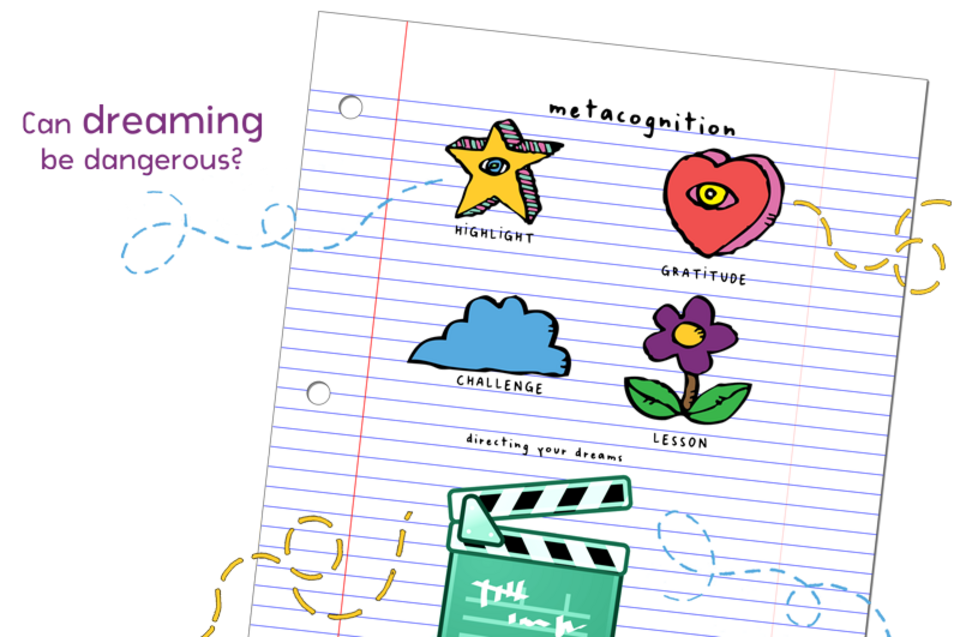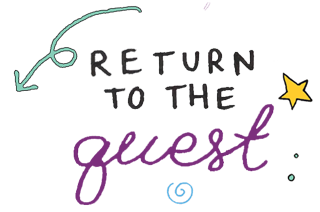
Directing our dreams
| Objective: To reflect on your incredible Philoquester experience to identify its key moments! |
Duration: 10 to 20 minutes
Material:
- A sheet of paper
- Pencils, eraser
Instructions:
- Think back on today. Think about the different thinking and creative activities you completed today.
- Answer the following reflection questions:
- How did you live hope today?
- What was your highlight today?
- What challenge did you face today?
- What lesson did you learn today?
- What is your gratitude today?
...
Bonus: How about ending the day on a positive note by making one of your dreams come true? Not by imagining that it is granted by a genie, but by taking on the role of a film director! What if you could decide exactly what your dream tonight is going to be, what characters it will feature, what sets will bring it to life and what soundtrack will accompany it? Are you going to explore the oceans? Discover a miracle cure for a disease? Take revenge on a rival? Ride a winged unicorn alongside the sky people? It’s up to you—you are the director! Remember this dream just before you fall asleep and maybe you will really experience it... Beforehand, though, what better way to fuel this dream than to think about these questions: Are dreams real? Can our dreams teach us something about ourselves? Can dreaming be dangerous? Unless it's the opposite and dreams make the world a better place…? What do you think? |

| Tricks for tots: Has anyone ever told you that you're daydreaming? Sometimes the word "dreaming" is used to describe someone who is lost in thought and doesn't pay attention to what's going on around them, even if they're not sleeping. It's weird, isn't it? Some adults even tell children to "stop daydreaming" when they see them doing this. Do you think it's important to daydream sometimes? Can daydreaming too often be a problem? Why or why not? |
| Tips for teens: How has your understanding of hope evolved over the course of this prodigious philosophical quest? Can you identify the specific experiences that have changed your view of hope? Did hoping to succeed in these philosophical challenges help you better understand hope? You can use your answers to the questions above to reflect on your experience. |
Share your creative reflections by sending them via email.
Include photos of your projects and notes of your thoughts, as well as your first name and your age!

